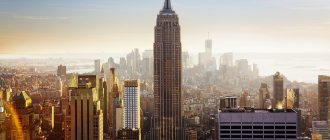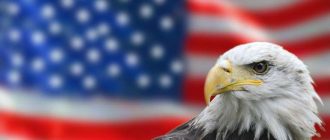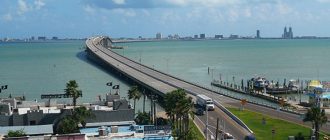After securing Dawn Star alongside the Esso marina, Dan Harrison gave me lunch and arranged for ‘clearance in’. The customs official insisted that I went to his office, for it turned out that Dawn Star was the first yacht ever to ‘enter’ at Georgetown, and he had to telephone Charleston for instructions. In due course I filled in many forms and paid tonnage dues; these latter amounted to four cents, a sum which I paid and which was well in excess of the value of the many copies and necessary pieces of paper! I also received a Cruising Permit, which allowed me to cruise in waters of the United States for six months without dues, provided I reported my every change of port to the local customs officer within forty-eight hours of arrival.
Hearing a noise at 07:30 in the morning, I turned out and slid back the companion-way hatch; to my astonishment, well over two hundred people were looking down at me; many of them had been there since 06:00. The dock master had appealed to everyone to keep quiet as I was tired but nevertheless some were quick to come down the ladder before I could stop them. Apparently, the Press and radio had put out the news of my arrival with the first editions, and from that moment forth I spent the most enjoyable two months of the voyage, meeting many Americans in all walks of life. Chuck Palmer of Continental News Service spent a lot of time filming Dawn Star for television, and I saw his magnificent trailer caravan in which he toured for his assignments. It was fully air-conditioned with a hot water shower, and he had a radio telephone, the alarm system being connected to a klaxon; I was glad for his help in ferrying stores from the town back to Dawn Star. As in many American towns, I found Georgetown ‘dry’ and I could not buy a beer ashore. It is a sleepy old colonial place with many lovely weatherboard houses, the oldest bank building in the USA, and an imposing slave market.
Here I was able to slip Dawn Star or, as the Americans call it, ‘Put her on a railway’, to anti-foul her bottom over a weekend. The work in the heat was gruelling, for there were first a lot of barnacles and tubers to scrub off. I was sometimes confused at the language and its meaning. For instance: a slip is a railway, a pier is a slip, a slip is a dock; gas is a liquid and when measuring it their gallons are not the same as the Imperial ones!
There were visits to the Truelucks’ beach house ten miles away at Pawlis Island, and like many of his friends, Jim apologized for not being able to offer me an alcoholic drink, only fermented sugar cane! At lunch parties I was generally given iced tea with lemon, which I found most refreshing, and Patty Evans thought nothing of driving me the sixty miles to Lake City to dine with her relations, where I also visited a tobacco farm. All the houses were air-conditioned and I was very interested to see that everyone had colour television.
It was here at Georgetown that I entered the Intracoastal Waterway which is a canal system running from Tampa in West Florida round to Cape May just south of New York. It is maintained by the Engineer Corps of the United States Army, and is available for ships drawing up to nineteen feet and with masthead height of sixty. In some places it is only a hundred yards from the Atlantic, and in others, many miles; rivers and inlets have been used wherever possible, including the Chesapeake and Delaware bays, but there are many miles of man-made cuts and the whole system was not completed until 1934. So I motored to the north-east through the heart of South Carolina country, up the Maccamau River, richly wooded; past cypress swamps and abandoned rice fields, and on the first day covered fifty-seven miles in fourteen hours.
Anchoring near Mad Inlet, Sunset Beach, for the night, I was lucky enough to have a light breeze to cool the yacht a little. For day after day the Stuart Turner engine purred faithfully away, only once causing trouble because of dirty petrol. Except near the towns, many of them resorts, I rarely met another craft under way; occasionally I was able to use a genoa if I got a slant, but as the width of the canal often restricted manoeuvrability I could seldom use the mainsail. I anchored the second night a mile from Wrightsville, and several small craft came alongside to ask questions and share a beer. That day I covered fifty-eight miles and on the following fifty-four. I was pressing hard because Peter Rose and I had arranged to meet at Morehead City on July 1st and it was already the 2nd.
Swansboro was an attractive little old village of weatherboard houses by New River Inlet, and I stopped there for fresh meat, bread, and much welcome ice which I could store in a vacuum flask.
When I asked for three gallons of gasolene the marina attendant thought I said 300; he had a very long face on discovering his error, and just refused to believe that the engine could run for four hours on one United States gallon, this being five-sixths of an Imperial one. Nobody seemed to bother about fuel consumption as it was so cheap, being r r, 4d. per United States gallon, and it was nothing for the large motor cruisers to top up with two or three hundred gallons. A lot of these were fully air-conditioned, had television and radio transceivers; even the small twenty-footers had refrigerators and deep freezes, while it was unthinkable to offer anyone a drink without ice.
The marina organization is first-class and for this reason no one bothers to carry a dinghy. Dawn Star’s was very rarely used. On securing for the night these cruisers plug in to whatever electric-power system they desire, though some have their own generators, so heavy is the load, especially if cooking is by electricity; these are very noisy and most unpopular with others on the waterway. Since my arrival in the States ten days beforehand I had counted but four sailboats.
On arrival at Morehead City neither the ‘Gulf Oil’ dock nor the marina had any room available for a yacht to secure alongside, so to everyone’s surprise I simply anchored 200 yards off in a small bay. Here, I was free from sightseers peering down at Dawn Star and also avoided banging against the piers as high-speed runabouts went by; it proved a blessing in disguise.
Like many other American cities, Morehead City has only one main drag with a post office, two banks, and a few stores. The name ‘city’ is often used to differentiate a place of the same name from that which is a ‘town’, a ‘village’, ‘ville’, or an ‘inlet’.
Peter Rose arrived with Odd Times, and after lunch he left to do a small lecture tour. Unable to obtain even a beer in ‘the city’, we had to dive into his fast dwindling stocks of ship’s stores to celebrate this good fortune.
On American Independence Day, July 4th, Buck Mathews, who owned a big drug store in the city, came aboard to see over the yacht and then took me home to a barbecue steak supper with his family.
Next day I collected my mail at ‘general delivery’ and had to explain in words of one syllable just why I was ‘checking in’ to the customs officer. It was apparent that she had never before seen a cruising license for a foreign yacht, but on its production she promptly placed her entire services at my disposal!
Receiving instructions from Lloyds Bank in England, I collected £100 worth of United States dollars at a bank which went under the impressive name of ‘Wachovia’ ; the manager was expecting me and only too anxious to improve my credit. I spent that night at Adams Creek, before motoring on down the Neuse to Pamlico, past Belhaven, anchoring short of Wilkerson Bridge.
The next day was oppressively hot, but I made a large day’s run of sixty-three miles down the Alligator River and across Albemarle Sound to enter the Pasquatank River, leading to Elizabeth City, where I secured alongside The Shipyard marina before lunch the following morning.
Below, the ship was infested with ants and tiny bookworms, in spite of my twice-daily sprays with a DDT aerosol can. I always prefer to anchor off to keep down the intrusion of flying insects, cockroaches, and other animals that walk, and I think it was largely due to this policy that I had kept the yacht relatively free. However, with the close proximity of land as I wended my way north inland, it was impracticable to maintain this.
Apart from the beautifully clean anti-fouling, which no one could see in the murky water, Dawn Star looked pretty down at heel and little credit to the Blue Ensign hanging limply astern; the once-white topsides were heavily streaked by rust from the rigging and deck ironwork; 80 per cent of the varnish had peeled off and the bare mahogany lay bleached, while the deck was bereft of paint in places. Time was so short that I could not afford to stop for a week’s work of painting. She was perfectly sound and all the gear still in pretty good shape, for I had been able to carry out daily maintenance.
At Elizabeth City, Captain Bill Harrington and Cissie Sanders at The Shipyard looked after me to an extent I shall never forget; and I enjoyed the luxury of showers ashore and dining in an air-conditioned restaurant at the Holiday Inn Motel. We burnt the midnight oil and I was to see dawn break many times during my brief visit to the States.
In North Carolina, State Law prohibits the sale of more than five bottles of spirits to any man in one day; furthermore the State owned the only liquor store in town. With my entertaining running at an average of two to three bottles per day, I had to restock, so went along with two friends on two consecutive days.
I always enjoyed keeping open house to the many yachtsmen I saw, and as a result met many interesting people who took me sightseeing in the neighborhood or off for supper in their homes.
One night I found myself at a dinner party which included a youth who was not quite right in the top quarter. While everyone else drove back to The Shipyard I said I would walk back with him. Little did I realize that I was quite lost in the maze of tree-lined streets around midnight and he led me a jaunt along the main highway which he crossed five times, weaving between the traffic zipping past at sixty miles per hour. After an hour of this nonsense I got tough with him; I was thinking about how I could find a telephone and get the police, when, to my relief, his father appeared in a car alongside us; he was also on the point of calling the police, having been cruising the streets for what seemed ages. All ended fairly well back aboard their yacht, but I certainly slept that night.
The Great Dismal Swamp bordering North Carolina and Virginia is of great interest to the ornithologist, but I was told to get through it in one day, besides being warned about alligators. Though I did see many birds, the flying life was mainly confined to millions of mosquitoes and green flies; the heat was oppressive, around 106° F.; the only draught was that created by my own movement. On the whole passage through, with the trees sometimes nearly meeting overhead, I saw only one other vessel on the move, a power cruiser. Apart from her the monotony of the whole forty-mile passage was broken only by the two locks and the sole bridge which carries the only road leading across the swamp; at these points I saw only keepers. The main commercial channel lies over to the east, and joining it two miles south of Norfolk at sunset, I quickly found a small bay in which to anchor for the night. It was most unpleasant and disturbing with traffic running all night. Out here the barges are pushed by magnificently designed vessels with high-flung bridges, awnings, and piped iced water. They have powerful searchlights, and everyone that passed had to light up Dawn Star for a minute to investigate the riding light, for an American yachtsman always goes to a marina for the night.
I motored into Norfolk, Virginia, past many warships refitting at this famous naval base, and was not kept waiting a moment for the three massive bridges to swing and lift open while thousands of cars were kept waiting for my slow passage through at a mere 3 3/4 knots.
It was not easy to find Hudgins marina on the east bank, but they were expecting me for lunch. Over wonderfully cool drinks again, I gave a Press interview and after the photographs Lee drove me into Norfolk to purchase stores in a supermarket; these he took back to the yacht, leaving me to look round the city. Apart from the shipyards, the only other feature of real interest is the old courthouse, which is the last resting place of General Douglas MacArthur of Bataan, the victor of the American War in the Pacific. Here I saw many mementoes of the last war before walking the mile and a half back to the marina.
The next morning a hand hauled me aloft for an hour to go over the rigging and relash the roller tubing on the outer shrouds. I spent the evening with a chap off a motor yacht, going into the city for an excellent dinner and a wander round a few of the sleazy bars for beer to keep us cool.
Having heard so often that everything in the United States was desperately expensive by British standards, I found in practice everywhere I went that standard for standard, the cost of food and most commodities which I purchased was cheaper. Of course, I did not have to buy a house, and on inquiring I found these worked out at about two and a half times the cost of a comparable one in England.
On July 14th I crossed over the James River to Hampton, securing alongside the yacht club at 18:00. In the evening the club gave me a great reception, the jollifications going on until the early hours.
Next morning I was driven over to Newport News Shipyard, and after lunch I visited the Mariners Museum. This national maritime museum of the US A houses a tremendous collection of exhibits, not in dusty cabinets with dim lights put on by a grudging elderly man, but as real live exhibits under effective lighting; the deputy director met me and arranged for a guide – a young lady! My eyes were beginning to open. The library is enormous and I spent an hour there with the librarian.
On old prints I pointed out the quay I had left in Chatham Dockyard fourteen months previously, and sadly, the old wooden building in which HMS Victory had been built; fire had just consumed the entire place.
That evening the Gibson Island Yacht Squadron finished their annual race to Hampton, and the dinner and parties went on aboard the yachts until dawn. ‘Pistol’ Derringer and the commodore, Henry Wise, had an endless repertoire of songs which kept us all going, though at times one of the party would crawl off to a bunk and fall asleep despite the banjos and singsongs across the docks.
On the Saturday morning Marsha Quinn, to whom I had an introduction, picked me up in her auto to go shopping.
I went to buy a pair of long blue terylene pants at a store, and when it was found they were out of my size they immediately offered to make me a pair if I could return in an hour. My interest was aroused, so I took Marsha off for lunch and on our return my pants were waiting. The floor walker then advised me not to pay cash – apparently this happened very rarely – but to pay 1 o per cent down on a total bill of thirty shillings, and then as I was English, I could slip the country without paying the remainder! I was utterly flabbergasted at this suggestion from one of their own assistants, who then took my few dollars most unwillingly!
We visited Fort Monroe, built during the American Civil War: it was in one of the casements of this fortress that Jefferson Davis, the President of the Confederate Southern States, was held prisoner for nine months, two of them in irons.
St John’s Church in Hampton was once used by the British as a stable; today it has the oldest silver communion service in America, dating from 1618.
Despite desegregation, I heard that the Hampton Institute, established in 1868 for the education of American Indians, and now a magnificent college, had but eleven white students among its 2,000-odd Negroes.
I entertained my kind hosts from the yacht club aboard Dawn Star that evening.
On Sunday, Ralph and Marsha Quinn drove me to Williamsburg, the first real town built in the colonies overseas.
Jamestown went into a decline in the eighteenth century when the centre removed to Williamsburg; today it is a historic monument to early colonial days, and the township has been completely rebuilt as it was in l 770 with the Governor’s Palace and Burgesses Hall. The old trades are demonstrated in the shops. Cars are not allowed in the streets, only horse-drawn gharries, and all those associated with this re-creation of the lovely old place were dressed in period costume.
After a few hours’ sightseeing we went down to Jamestown on the James River and saw replicas of the three ships which brought the first settlers out to Virginia from England in the early sixteenth century. There is also a replica of the stockaded settlement where they lived.
It was here that Princess Pocahontas saved Captain John Smith from being beheaded by her Powhowtan tribe; subsequently she was baptized a Christian, married an Englishman by the name of Wolfe, went to England and was received at the Court of King James. Unfortunately, she died of a fever, and is buried in St George’s Church, Gravesend; a statue of her is in the churchyard there.
From my dreams of far-off Gravesend, I was brought back to reality when I saw the stone plaque which recorded this bare fact in the wall of a half-ruined brick church in Virginia.
The first Legislative Assembly to be held in the American Colonies also met in this church when Jamestown was the capital, until the seat of government shifted to Williamsburg. Jamestown then fell into decay and became a plantation. Now it is derelict but for the museum pieces and the ruins.





